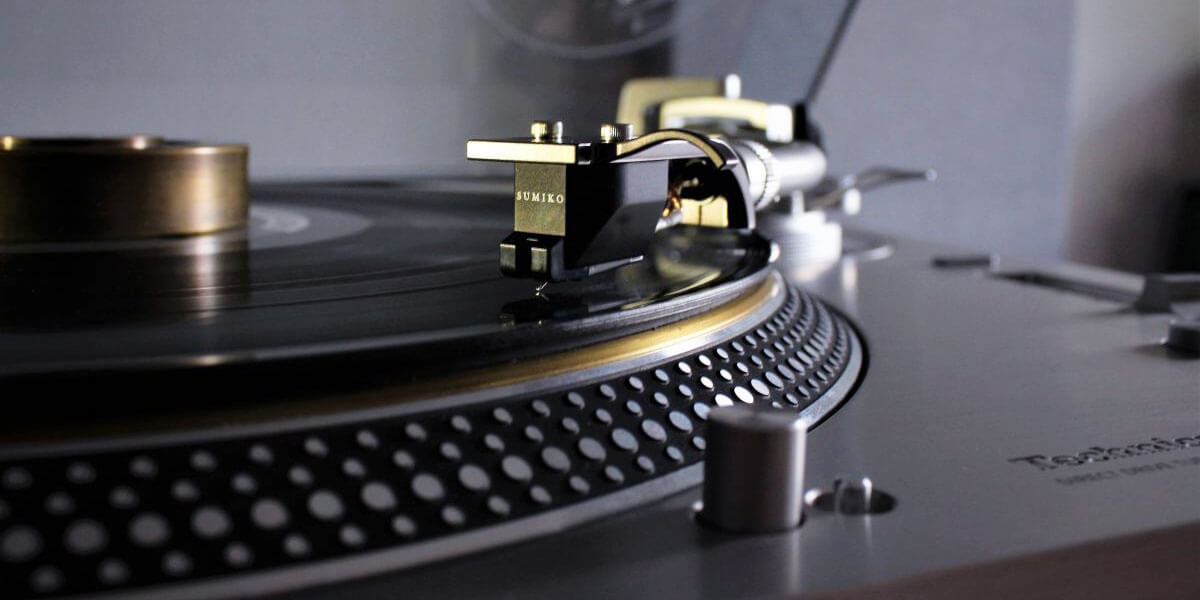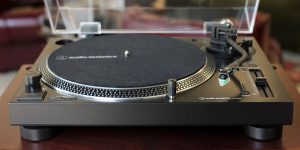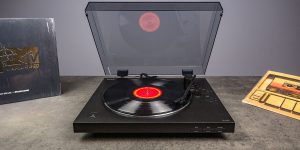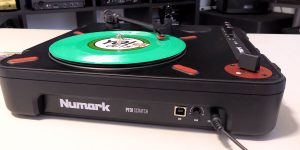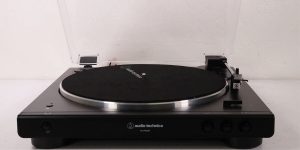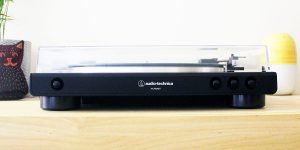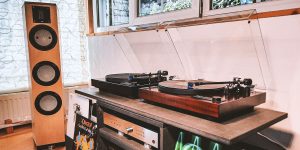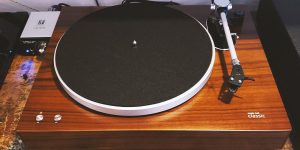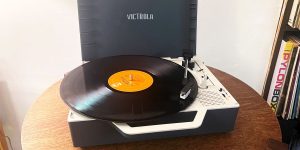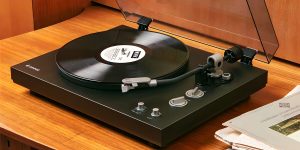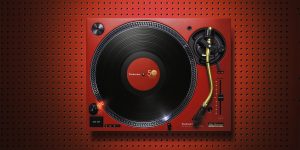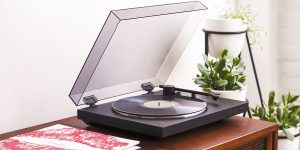Selecting the right phono cartridge for your turntable is a decision that can significantly impact your vinyl listening experience. Two primary types of phono cartridges dominate the market: MM and MC. Each has its own set of characteristics, advantages, and considerations. I will help you navigate the choices to find the perfect match for your vinyl setup.
Understanding turntable cartridges
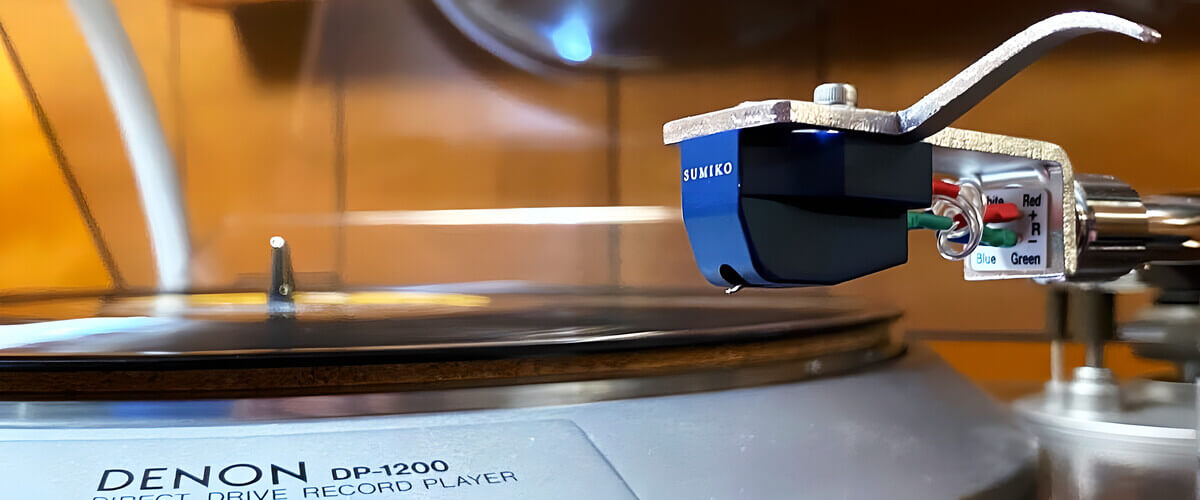
Turntable cartridges play a crucial role in translating the grooves of a vinyl record into an electrical signal that can be amplified and reproduced as sound through speakers.
What is an MM (moving magnet) cartridge?
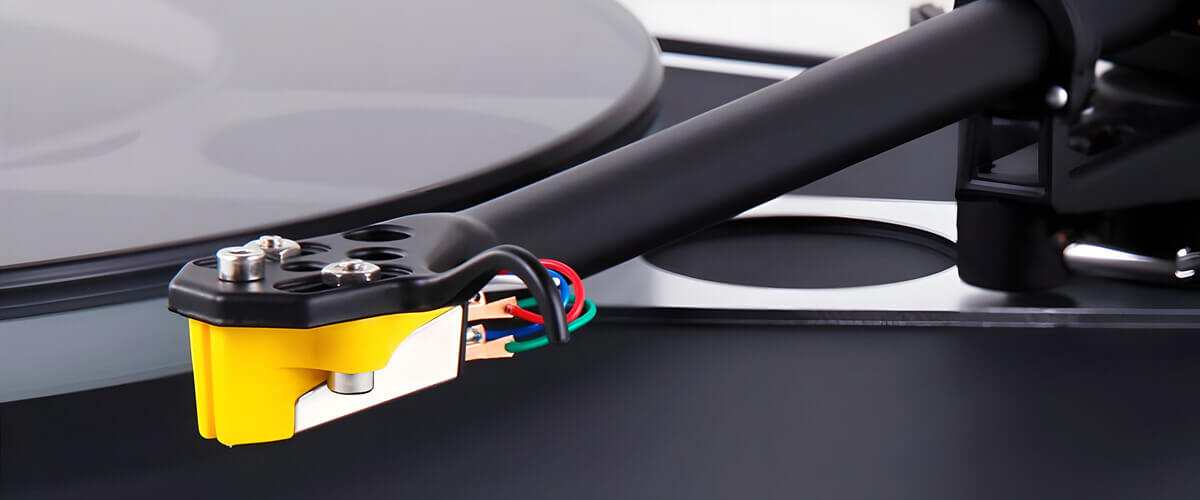
MM cartridge is a type of phono cartridge used in turntables to convert the mechanical vibrations of a stylus tracking the grooves of a vinyl record into an electrical audio signal. The key features of MM cartridges are:
- Magnet configuration. A tiny permanent magnet is attached to the end of the stylus cantilever. This magnet moves within a stationary coil of wire, which is positioned close to it. As the stylus traces the grooves on the vinyl record, the movement of the magnet within the coil generates a small electrical voltage, which corresponds to the audio signal.
- Output voltage. Their higher output voltage makes them more compatible with a broader range of phono preamps and integrated amplifiers.
- Sound characteristics. They can provide warm, detailed, and balanced sound reproduction.
- Stylus compatibility. These cartridges are compatible with a variety of stylus shapes, including spherical, elliptical, and hyperelliptical.
Moving magnet cartridges are versatile and widely used in various turntable setups:
- Home audio systems. MM cartridges are frequently used in home audio systems, including both entry-level and mid-range turntables.
- DJ turntables. Many DJs prefer them due to their durability and reliability in high-performance environments.
- Archival and vintage playback. When playing vintage vinyl records or digitizing vinyl collections, MM cartridges are often chosen for their ability to reproduce the sound of older recordings.
Audio-Technica is well-known for its wide selection of MM cartridges, including both budget-friendly and higher-end models. Ortofon offers a range of MM cartridges known for their balanced sound and stylus upgradeability. Shure has a legacy of producing reliable MM cartridges, which are favored by DJs. And, of course, Denon produces MM cartridges that are often included with their turntables. For instance, the Denon DL-110 and Denon DL-103R are popular choices among audiophiles.
Advantages of MM cartridges
They offer several benefits that make them a popular choice for those looking for a balance between performance and affordability. Here are the key advantages of MM cartridges:
- They are generally more budget-friendly.
- Its ease of use simplifies setup and eliminates the need for additional amplification.
- Their design and construction make them less prone to damage during installation or use.
- MM cartridges are compatible with various stylus shapes.
- Many of them offer replaceable styli, which can extend the lifespan of the cartridge and provide an affordable way to refresh your setup.
- They can handle the rigors of scratching and mixing without skipping or causing excessive record wear.
- MM cartridges can reproduce the sound of older recordings accurately.
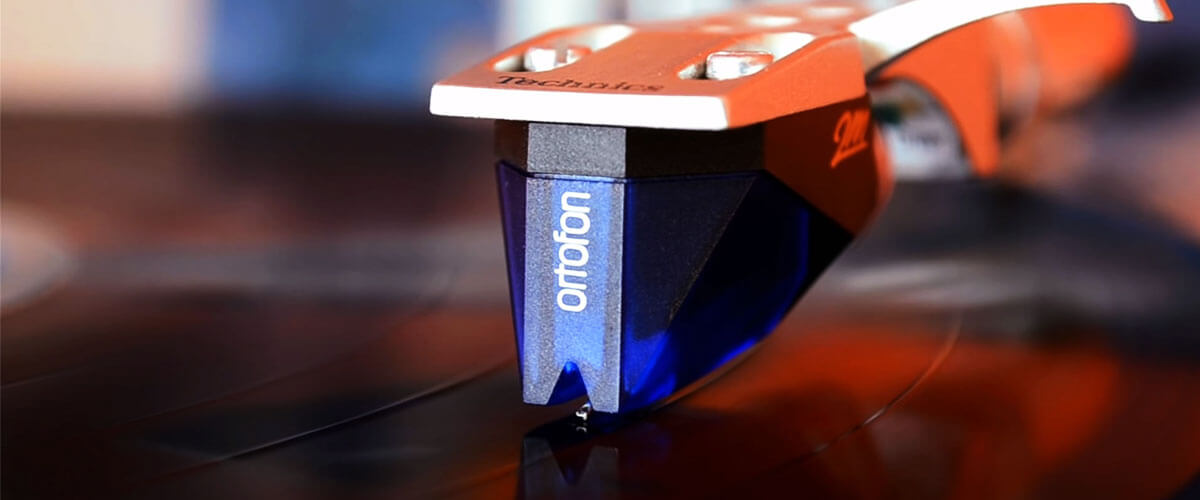
Disadvantages of MM cartridges
They also come with some disadvantages that may be worth considering, especially if you’re exploring cartridge options for your turntable:
- Its lower output voltage can lead to slightly higher noise levels and may require more gain from the phono preamp or amplifier.
- May not provide the same level of high-frequency detail and precision as some high-end MC cartridges.
- In some cases, MM cartridges may not track challenging or heavily worn records.
- MM cartridges may have limitations in reproducing the subtle micro-dynamic nuances found in some high-resolution vinyl recordings.
- Lower-priced MM cartridges may not offer the same level of performance as more expensive counterparts, potentially leading to inconsistencies in sound quality.
- These cartridges often use less advanced stylus shapes.
What is an MC (Moving Coil) cartridge?
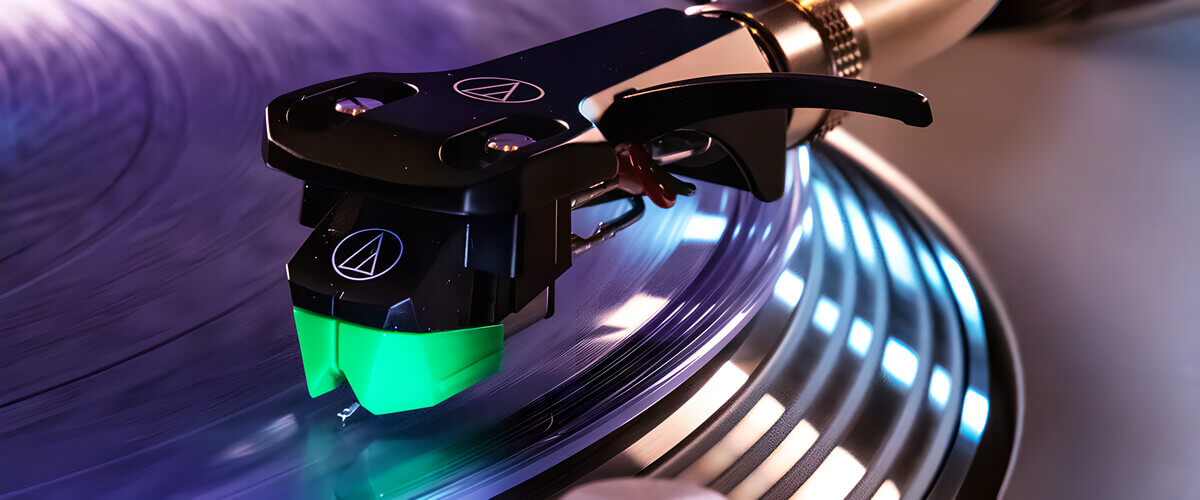
A Moving coil cartridge is used to convert the mechanical vibrations of a needle tracking the grooves of a vinyl record into an electrical audio signal. MC cartridges are known for their excellent audio performance and are favored by audiophiles seeking the utmost in sound quality and accuracy.
The major characteristics of MC cartridges:
- Coil configuration. A tiny coil of wire is attached to the stylus cantilever. It moves within the magnetic field of permanent magnets positioned nearby. As the stylus tracks the grooves on the vinyl record, the movement of the coil within the magnetic field generates a small electrical voltage, which corresponds to the audio signal.
- Low output voltage. Its lower output requires a dedicated and high-quality phono preamp with a higher gain to amplify the signal to standard line-level output.
- Stylus and cantilever. MC cartridges often feature advanced stylus profiles (e.g., line-contact, micro-ridge, Shibata) and materials for the stylus and cantilever. These elements contribute to the cartridge’s ability to extract intricate musical details.
- Coil mass. MC cartridges have lower moving mass due to the small coil, which contributes to improved tracking ability and transient response. This design minimizes distortion and reduces record wear.
- Sound quality. They provide a highly detailed, transparent, and natural sound, which is appreciated by those seeking the highest level of musical fidelity.
- Low output impedance. MC cartridges generally have a lower output impedance compared to MM cartridges, which can be advantageous when paired with certain types of phono preamps.
The common uses of MC cartridges may be the next:
- High-end audio systems. MC cartridges are often paired with high-quality turntables, tonearms, and phono preamps to create high-end audio systems capable of delivering superb sound quality.
- Critical listening. They are suitable for critical listening environments, such as dedicated listening rooms and home audio systems, where every nuance of the music is important.
- Archival playback. When archiving vinyl collections or digitizing records for preservation purposes, MC cartridges are chosen for their ability to reproduce the original recordings.
- Hi-Fi stereo systems. They are commonly integrated into high-quality stereo systems to provide an immersive and realistic listening experience.
Popular brands of MC cartridges include Koetsu, renowned for its handcrafted quality and warm, organic sound. Models like the Koetsu Rosewood and Koetsu Black Onyx are considered top-tier. Benz Micro is known for its MC cartridges, such as the Micro Benz LP S and Micro Benz LP H. They are appreciated for their detail and tracking ability. Lyra cartridges are celebrated for their exceptional sound quality and craftsmanship. Models like the Lyra Delos and Lyra Kleos are sought after by audiophiles.
Advantages of MC cartridges
As you’ve already realized, they are often chosen by dedicated audiophiles who prioritize sonic accuracy and are willing to invest time and resources into achieving the greatest vinyl playback experience.
- They excel in reproducing the subtle nuances and intricacies of music.
- MC cartridges convey the full range of soft to loud passages in music, which contributes to a more immersive listening experience.
- Such models ensure that the stylus follows the intricate grooves of vinyl records precisely. This reduces the risk of distortion and record wear.
- They have lower moving mass due to the small coil, resulting in improved transient response and the ability to handle intricate musical passages with precision.
- MC cartridges are well-suited for playing challenging records, such as those with heavy wear, surface imperfections, or intricate musical content.
- Such cartridges are designed for long-term use and often feature replaceable styli, which can extend the cartridge’s lifespan.
Disadvantages of MC cartridges
- Its higher cost can be a barrier for budget-conscious listeners.
- They often require additional equipment.
- Due to their low output, they may not be compatible with some phono stages or integrated amplifiers.
- These cartridges are delicate and more susceptible to damage from mishandling or accidents during setup.
- Achieving optimal performance from an MC cartridge can be more challenging, as precise setup parameters, including tracking force, azimuth, and loading impedance, are critical. Calibration and fine-tuning may require more time and expertise.
- MC cartridges experience stylus wear over time.
Choosing based on your needs
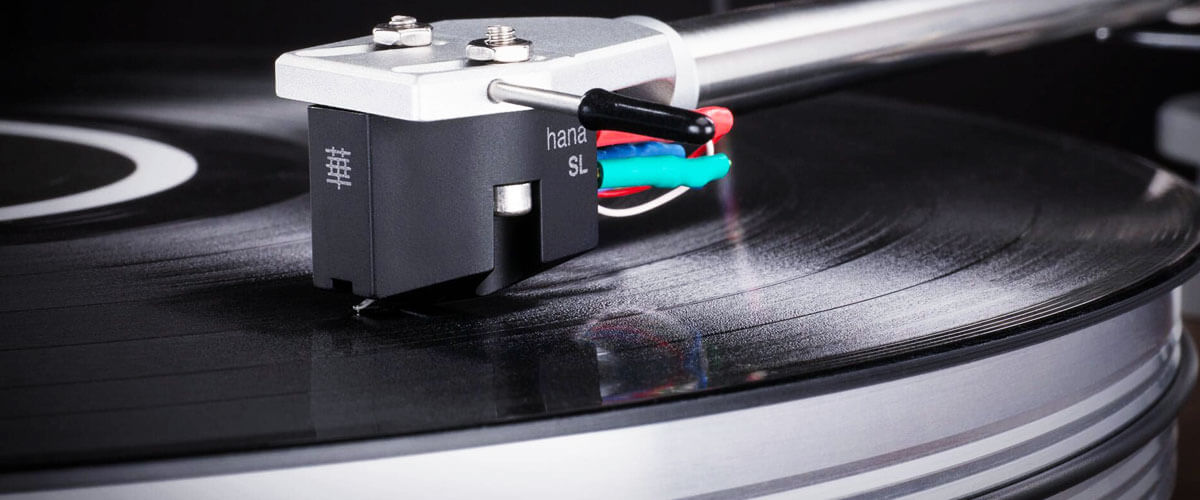
It’s essential to consider your specific needs, preferences, and the characteristics of your audio system. And I will provide you with a guide to help you make an informed decision.
Consider MM cartridges if:
- You are on a budget or cost-conscious.
- You are new to vinyl playback and want an easy setup.
- You have a broad range of musical preferences.
- You are using an integrated amplifier or phono preamp with standard gain levels.
- Durability and ease of use are essential for your setup.
Consider MC cartridges if:
- You prioritize audiophile-grade sound quality.
- You are willing to invest in high-quality audio equipment and phono preamps.
- You are experienced in vinyl playback and appreciate meticulous setup and maintenance.
- Your audio system is compatible with low-output cartridges or can be upgraded accordingly.
- You are committed to optimizing your vinyl playback experience.

